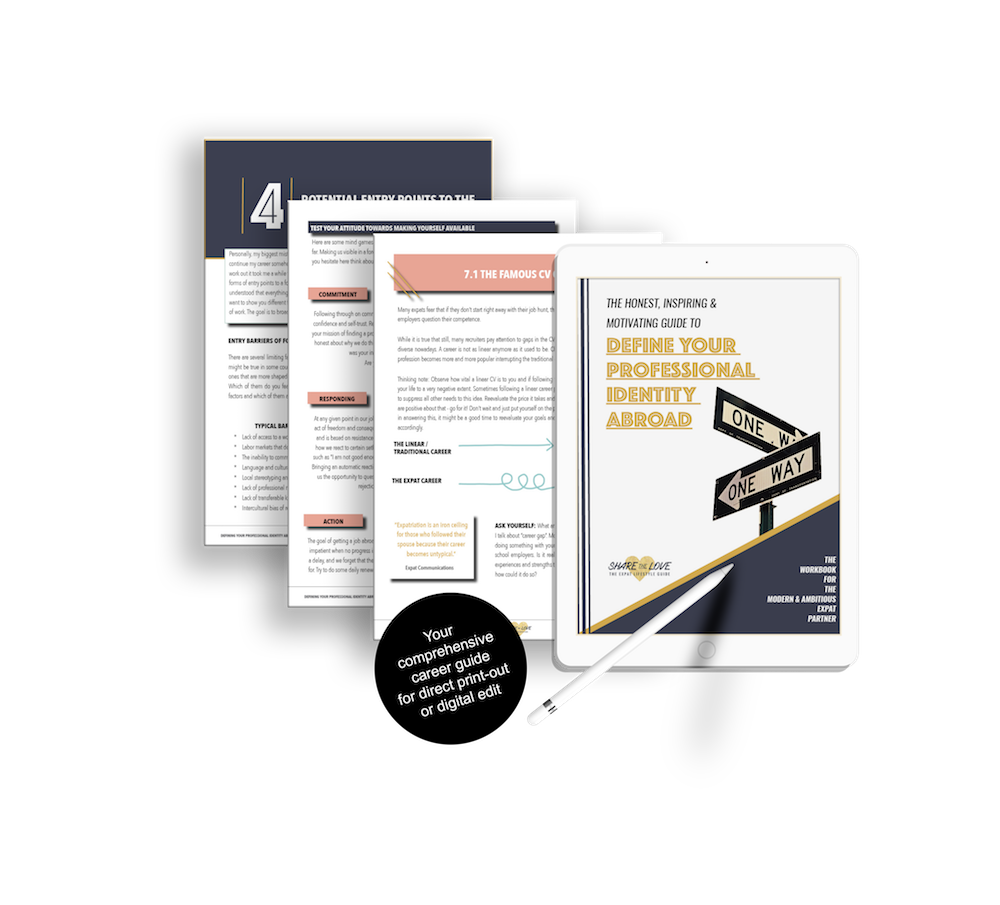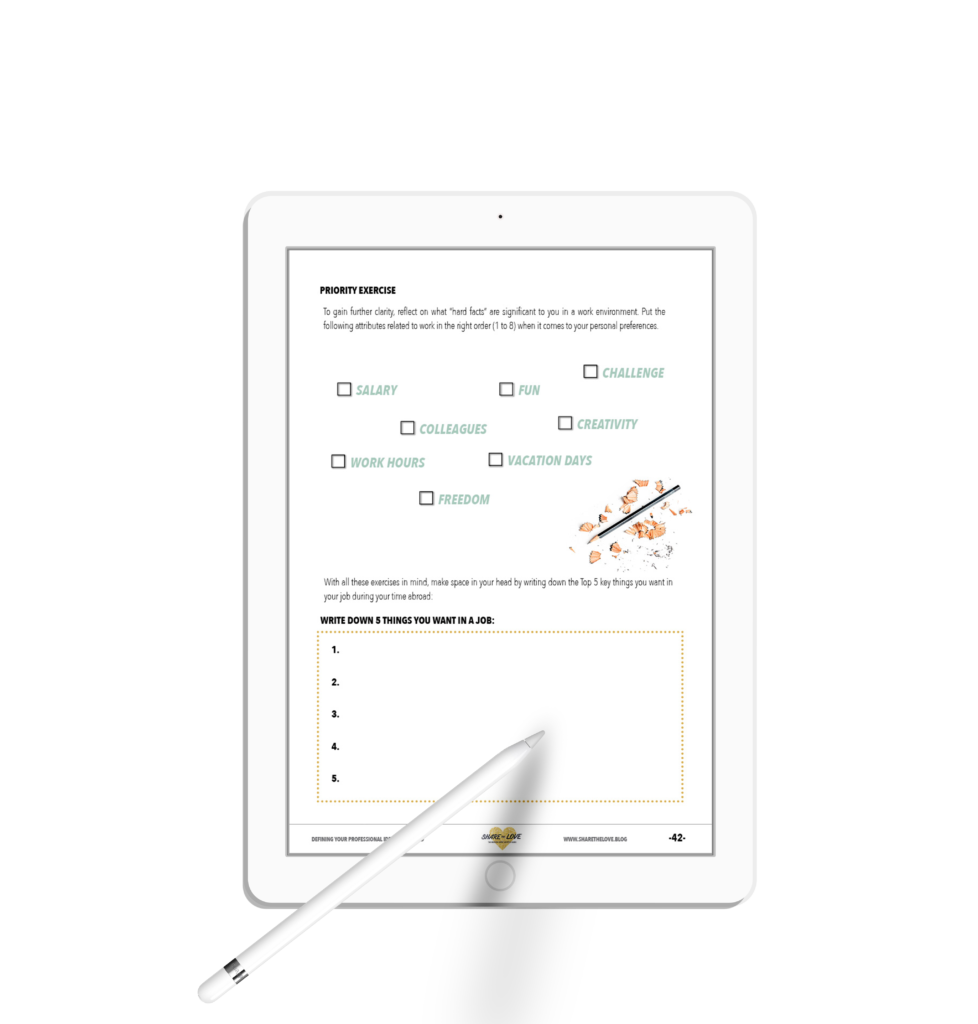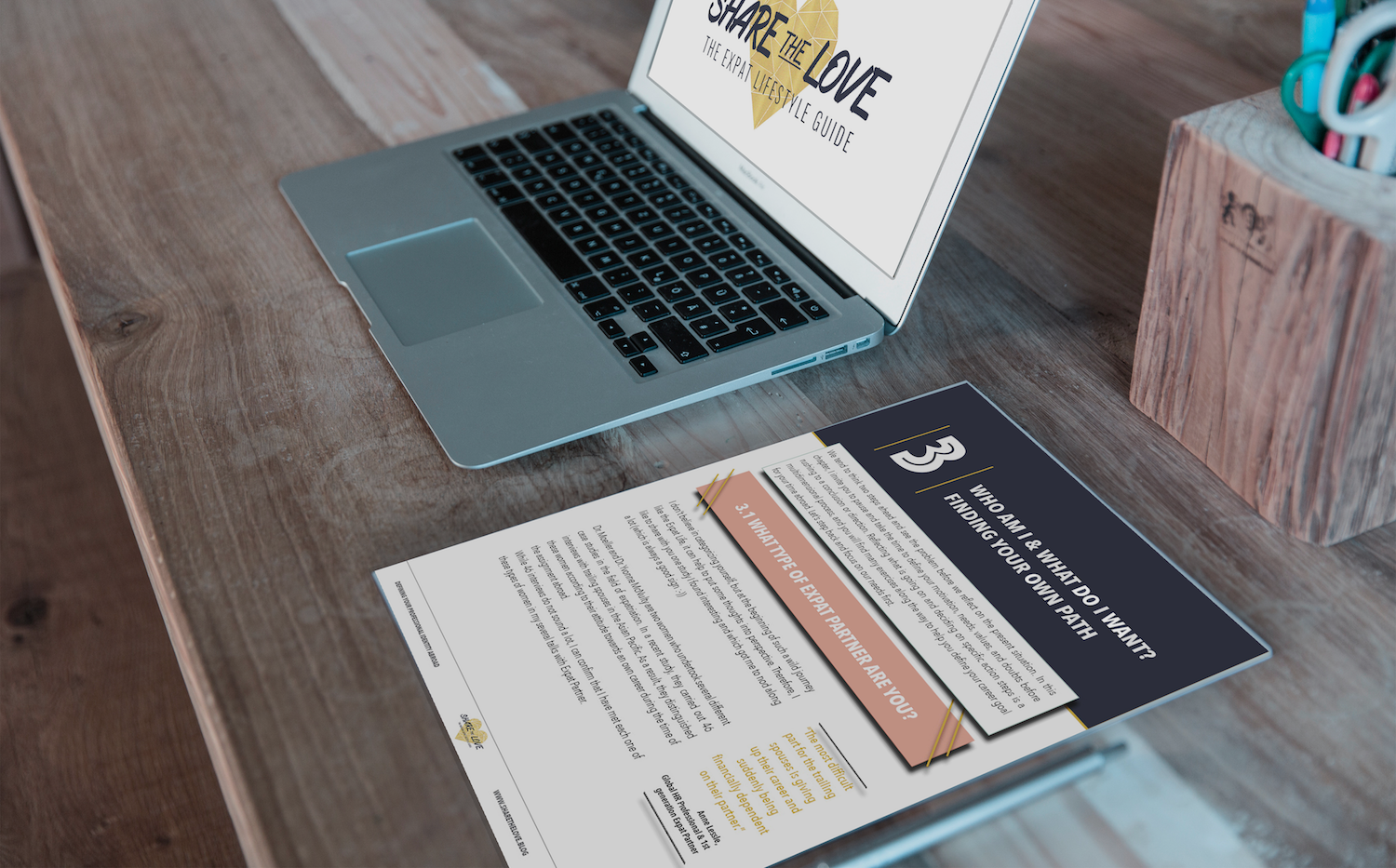
HOW TO FIND YOUR PROFESSIONAL IDENTITY ABROAD
When I was a fresh Expat Partner, I was absorbing all the many new things around me, the different culture and all those new facets of our way of life. Everything was changing and no day was like the day before. However, I lacked some guidance on how to continue with my career abroad. Many contacts and plans did not work out as planned and I was longing for some advice or guidance. When my original intention of continuing my old career path did not work out, I needed to think differently.
We as Expat Partners face not only the challenge to deal with cultural differences and a new daily life, but we also have to ask ourselves:
- Am I allowed to work abroad?
- Can I take my career with me?
- How can I maintain my professional network back home?
- How to make the most out of my time abroad?
- How do I sell myself abroad?
- How can I enter the foreign job market?
- What will I do?
Want some good vibes in your mail?
With the goal to give some guidance that I myself missed the most when starting this adventure, I decided to write about it and dig deeper into the topic on how to find your professional identity abroad as the Expat Partner.
I read into academic studies on expatriation to get an understanding of how this topic developed over time and where the whole industry of working abroad is heading to. I talked to so many inspirational Expat Partners worldwide and asked them about their story, learnings and guidance and top tips for finding meaningful work abroad. I also questioned what it takes to apply overseas, what mindset, what qualifications and what attitude. We need to sell ourselves differently. Still too often we find the terms „trailing spouse“ or „independent partner“. Some employers might think we have chosen family over career and are not really job focused. However, the opposite is the case. We have put ourselves outside our comfort zone and have been ready to give everything up to learn something new. As the Expat Partner we need to get better in our storytelling and to accomplish that it is my belief that we have to address some very fundamental questions first:
- What is important to me?
- How did my former job/career reflect that?
- What do I value in life?
- What is missing? It what direction do I want to explore more?
- How do I define a successful expatriation to me?
- How can I build on my career and not only take on a job?
- Do my old life goals still match?
Because of this transformational part of moving abroad, I find it essential to not only put all the information together in one book but to also add valuable exercises to it that make us think and provoke some fundamental questions. I, therefore, designed it as a workbook which you can either print out to put pen to paper or work on it digitally as all fields are interactive and can be filled out.
Thanks for sharing the love and stopping by

Share this article with a friend and share the love:
You also might like:

Do you often question your own abilities? Watch out for the Impostor syndrome!
Do you sometimes feel out of place? Do you think others would be better suited for the task? Do you often question your own abilities? If you answered yes to these questions, it’s time to show you the concept of Impostor Syndrome. In this blog post, I’ll explain what Imposter Syndrome is, why it plays a significant role, especially in the expat community, and how you can leave it behind and rush into work or re-enter the job market with joy and confidence.

What do spouses work when moving abroad?
Learn how many expat partners are working abroad, the question of having a work permit or not and what to do when Plan A of continuing your former career does not work out.

The biggest challenges for the expat partner to work abroad
This blog post offers a well-structured overview of the most common challenges when moving abroad as a family for the accompanying partner and her own career plans. Knowing about the most common challenges will help you to prepare, to better understand the situation and the investment you are making and gives you a better position for negotiations with your partner and your partner’s company.






Eine Antwort
After completing my BA studies in the US, I decided to broaden my education with the master degree in interaction design at IED Barcelona. I think this was a smart move for shaping me professionally.